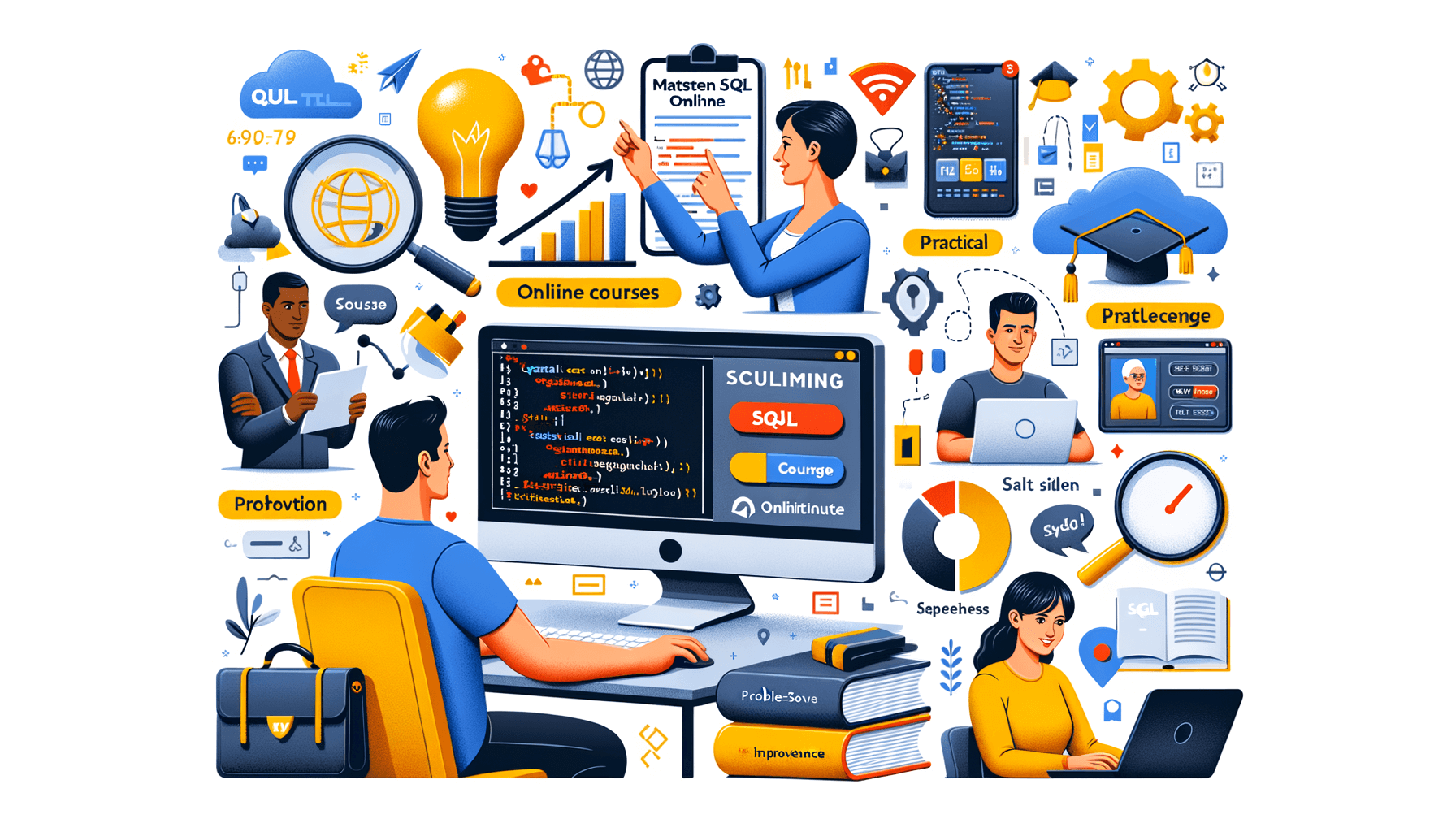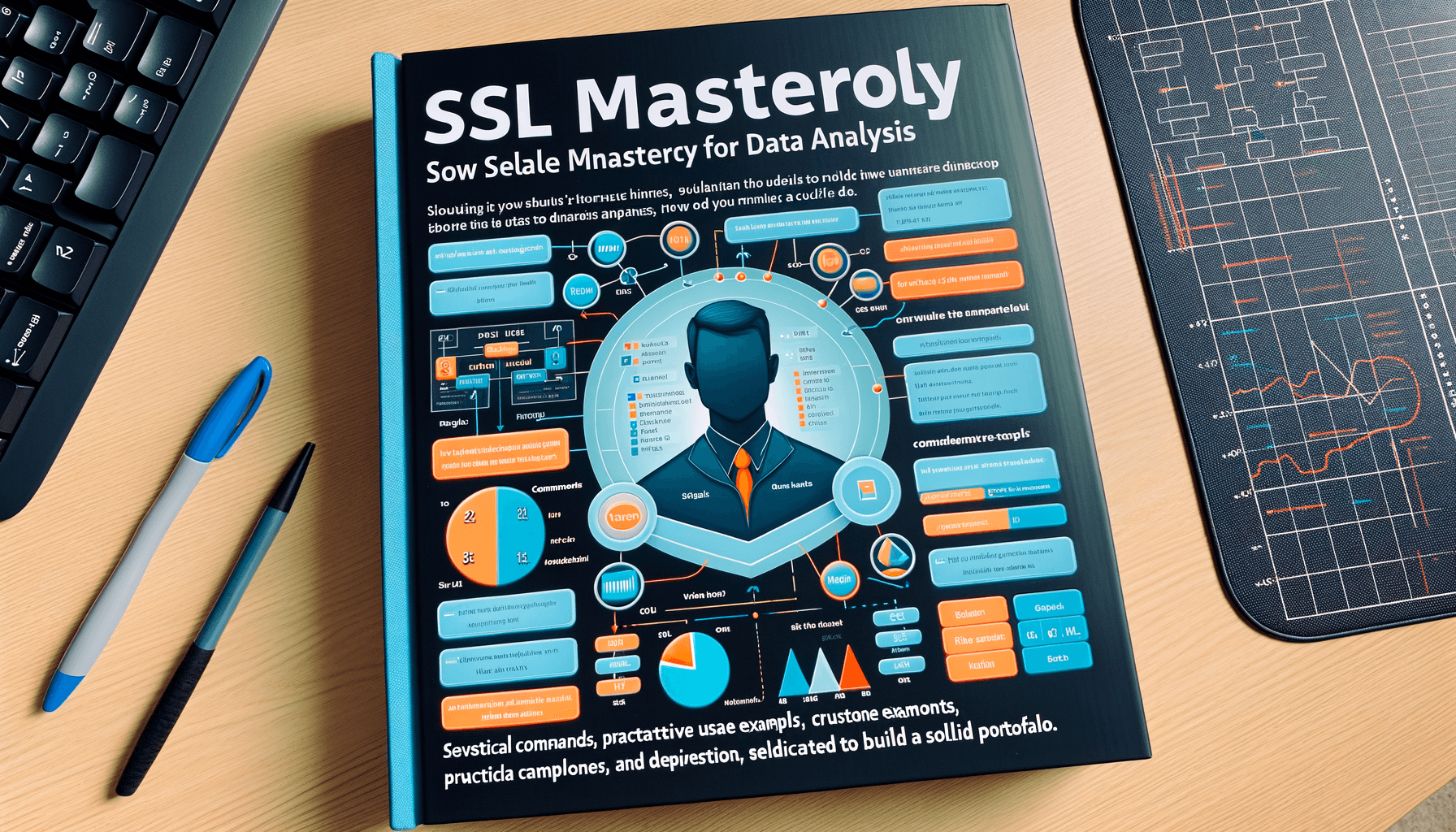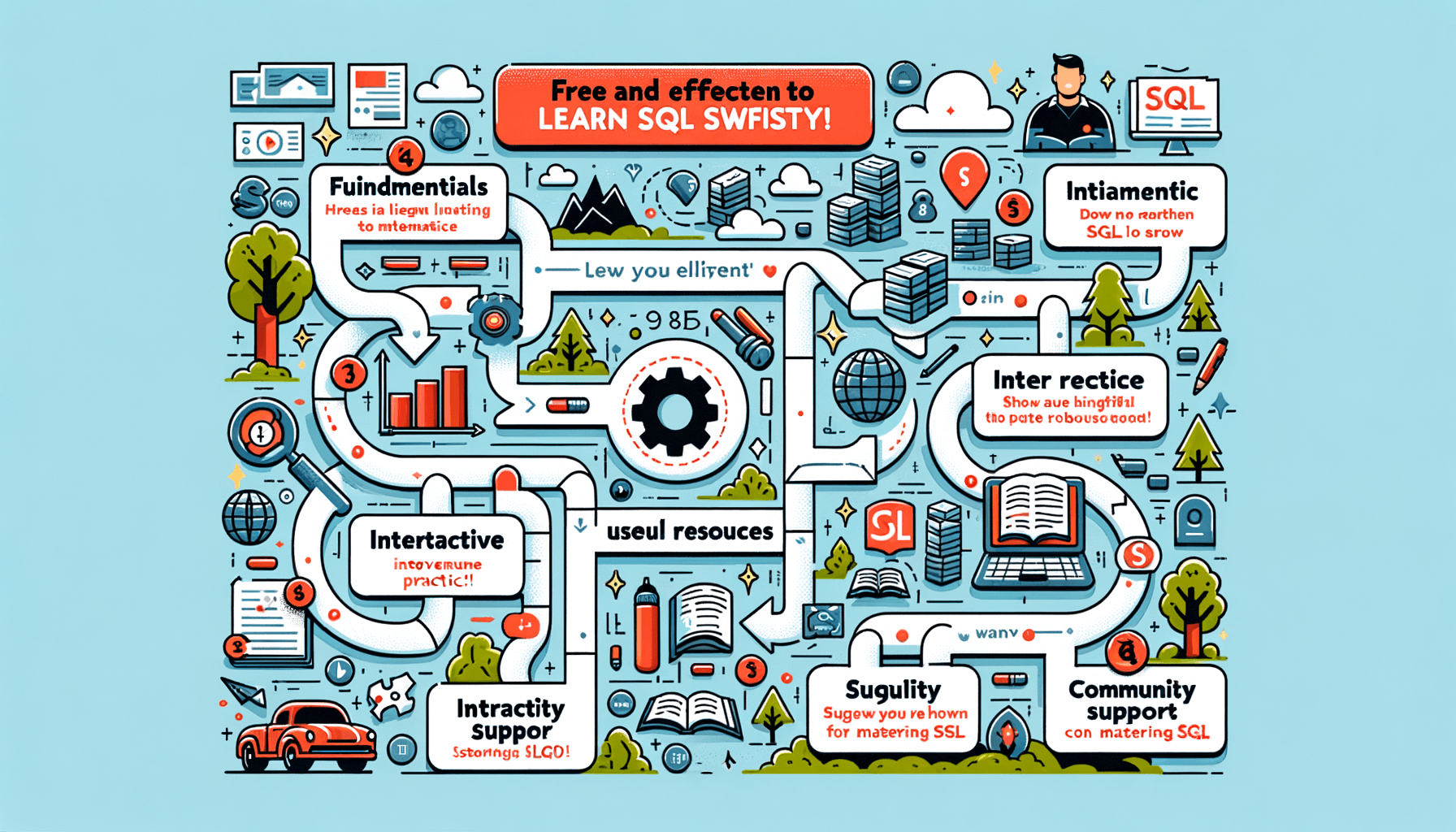A big variety of articles and resources

Top Free Courses to Learn SQL for Beginners
 Sia Author and Instructor
Learn SQL
Sia Author and Instructor
Learn SQL
9 minute read
1. SQL for Data Analysis
This course, offered by Udacity, is an excellent starting point for beginners looking to understand the fundamentals of SQL and its application in data analysis. Over a span of 4 weeks, you will dive into the basics of SQL, learning how to extract data, utilize SQL joins for table combinations, and perform SQL aggregations to summarize data.
You will also master complex data manipulations using subqueries, temporary tables, and window functions. The course emphasizes practical skills that are crucial for analyzing and deriving insights from data spread across multiple tables. Techniques such as INNER JOIN, LEFT JOIN, and RIGHT JOIN will be covered to enhance your ability to handle real-world data analysis scenarios.
Skills you can acquire include analytics, big data handling, and Python programming among others. The course is structured to ensure a comprehensive understanding of both theoretical and practical aspects of SQL in data analysis.
2. Intro to Relational Databases
The "Intro to Relational Databases" course offers a comprehensive introduction to the fundamentals of relational databases. It starts with the relational model and the reasons why relational databases are so prevalent. You'll explore key concepts such as the data model, schema versus data, and the roles of data definition language (DDL) and data manipulation language (DML).
You’ll learn how to select columns, filter through rows, and utilize SQL functions like AND, OR, and BETWEEN. This course is particularly beneficial for those who prefer text-based learning and standard exercises. It's structured to help you understand the anatomy of databases and how to efficiently query them.
This course is ideal for visual learners and those who are new to database concepts.
While the course includes extensive SQL tutorials through video lessons, it requires students to execute coding exercises in their own runtime environments, as interactive coding tests are not provided.
3. Codecademy
Codecademy offers a free course on SQL that is perfect for beginners. The course is structured through a series of interactive coding tutorials, which guide students from basic SQL functionalities to more complex projects. This approach is highly beneficial for those who prefer learning by doing.
The platform's sleek interface and a deep reservoir of exercises ensure a smooth and engaging learning experience. It's particularly recommended for students who desire a more professional feel during their learning process.
The course is designed to be self-explanatory, making it an excellent choice for students who want to learn SQL through small, simple exercises.
Key Features:
- Interactive coding challenges
- Real-world problems
- Career advancement opportunities
This course not only teaches SQL but also prepares you for real-world applications, making it a valuable resource for aspiring data analysts.
4. SQL for Data Science
The SQL for Data Science course offered by the University of California, Davis, is tailored to equip beginners with the foundational skills necessary for data analysis using SQL. This course emphasizes the practical application of SQL in data science, allowing learners to grasp the essentials of data manipulation and analysis.
Key Features:
- Comprehensive introduction to SQL basics.
- Hands-on experience with real-world data.
- Focus on data analysis techniques using SQL.
Learners will explore various SQL commands and functions, such as JOIN, INNER JOIN, and aggregate functions like SUM, MIN, and MAX, which are crucial for data analysis. The course also covers advanced topics like subqueries, temp tables, and window functions, ensuring a well-rounded skill set for career advancement in data science.
This course is ideal for those looking to jumpstart their career in data science through practical SQL skills.
5. The Structured Query Language SQL
SQL, or Structured Query Language, is a domain-specific language used for managing and manipulating data held in a relational database management system (RDBMS). It became a standard of the American National Standards Institute (ANSI) in 1986, and of the International Organization for Standardization (ISO) in 1987. SQL is essential for anyone looking to work with large amounts of data across various industries.
SQL's syntax is straightforward, making it accessible even to those new to programming. This simplicity, coupled with its powerful capabilities, makes SQL a valuable skill in many technical and non-technical careers.
SQL is used in a wide range of applications, from small local databases to large-scale enterprise systems. Learning SQL can open doors to numerous job opportunities in fields like data science, digital marketing, and software engineering. Here are a few key reasons to learn SQL:
- Data manipulation and retrieval
- Database management
- Enhanced data analysis skills
- Broad industry applicability
6. SQL: A Practical Introduction for Querying Databases
This course, offered by IBM, is designed to equip beginners with the essential skills needed for data management and querying databases using SQL. With a focus on practical skills, the course covers a wide range of topics from database basics to advanced data structures and database design. Participants will gain hands-on experience, working with real-world database problems and projects.
Key Features:
- Duration: 1 - 3 months
- Rating: 4.7 (270 reviews)
- Skill Level: Beginner
You'll start by learning the basics of databases, including types and table structures. As you progress, you'll delve into more complex queries and explore different SQL flavors like PostgreSQL and SQL Server, understanding their unique advantages and applications in various scenarios.
7. Introduction to SQL- DataCamp
DataCamp's Introduction to SQL course is a fantastic starting point for those new to SQL or looking to refresh their skills. This course covers the essential SQL syntax that is common across various databases such as PostgreSQL, MySQL, SQL Server, and Oracle. By the end of this course, you’ll be able to select specific columns, filter rows satisfying a condition, use aggregate functions to summarize data, and sort and group your results.
Designed for beginners, the course structure includes seven videos and 24 interactive exercises, ensuring a comprehensive yet manageable learning experience. It's a solid resource if you're a complete beginner, and you'll learn everything from what a database is to how to write nested queries and more.
If you're aspiring to be a data whiz or looking to enhance your skills, this course is for you. Start your journey with DataCamp's Introduction to SQL today!
8. SQL for Joining Data- DataCamp
This course, rated 4.6/5 and designed to be completed in 5 hours, is ideal for beginners eager to expand their SQL skills. You will learn how to effectively combine information from different tables, which is crucial for exploring and analyzing data from diverse sources. The course covers a variety of joins including inner joins, outer joins, self joins, semi joins, anti joins, and cross joins, making it particularly valuable for PostgreSQL users.
By mastering these join types, you'll be able to query and analyze data more comprehensively, uncovering insights that were previously hidden across multiple tables.
This course not only enhances your technical skills but also deepens your understanding of relational databases by providing practical, real-world examples of data manipulation and analysis.
9. Intermediate SQL Queries- DataCamp
This course is rated 4.6/5 and requires approximately 4 hours to complete, making it ideal for beginners who wish to delve deeper into SQL. You will learn how to transform raw data into actionable insights, which is crucial for data scientists working with relational databases. Mastering SQL allows you to efficiently manage and extract information from databases, a necessary skill for analyzing large datasets like medical records or customer transactions.
- Understand the structure of relational databases
- Learn advanced SQL functions and techniques
- Apply SQL skills to real-world data analysis scenarios
This course equips you with the tools to handle complex data querying tasks effectively.
10. Oracle SQL – A Complete Introduction- Udemy
Rated 4.5/5 and taking approximately 4hr 40min to complete, this course is ideal for beginners looking to understand the basics of SQL on an Oracle database. You will learn how to set up your Oracle environment, execute SELECT statements to read data, and explore the capabilities of SELECT statements in managing data.
This course not only covers the syntax common to SQL databases like PostgreSQL, MySQL, SQL Server, and Oracle but also provides practical skills for database management. It's a perfect starting point for those new to SQL or those who are familiar with other databases but new to Oracle.
This course is best suited for those who are just starting out and want to gain a solid foundation in SQL using the Oracle database system.
Conclusion
As we've explored some of the top free courses available for learning SQL, it's clear that there are numerous resources tailored to different levels of expertise and learning styles. Whether you are a complete beginner or looking to brush up on more advanced concepts, these courses provide comprehensive, step-by-step instructions to help you master SQL. From interactive coding challenges at Khan Academy to structured lessons on platforms like Codecademy and Coursera, there's a wealth of knowledge available at no cost. Take advantage of these opportunities to enhance your data manipulation skills and become proficient in one of the most essential tools for data analysis and database management.
Frequently Asked Questions
What are the best free SQL courses for beginners?
Some of the best free SQL courses for beginners include SQL for Data Analysis, Intro to Relational Databases, Codecademy's SQL course, SQL for Data Science, The Structured Query Language SQL, and SQL: A Practical Introduction for Querying Databases.
Why should beginners enroll in SQL for Data Analysis?
Beginners should enroll in SQL for Data Analysis because it covers SQL basics combined with practical exercises, making it ideal for those new to SQL.
What will I learn in the Codecademy SQL course?
In Codecademy's free SQL course, you will learn essential skills for database communication, how to manipulate data, and create queries that communicate with multiple tables.
Are there any SQL courses that focus on data science?
Yes, courses like SQL for Data Science and other related courses on Coursera provide step-by-step guidance in using SQL fundamentals for analyzing data and querying databases.
Can I get a certificate from free SQL courses?
In most free versions of SQL courses, you can access the material but cannot submit assignments, receive grades, or obtain a certificate unless you upgrade to a paid version.
Where can I find SQL courses that include practical exercises?
Courses such as SQL for Data Analysis and Intro to Relational Databases on platforms like Coursera and Udemy include practical exercises that help reinforce the learning material.
Related Articles

10 Effective Tips on How to Learn SQL Online
9 minute read

A Comprehensive Guide to Learn SQL for Analysts
8 minute read


